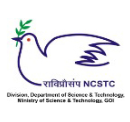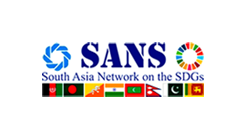
Platform – Virtual (ZOOM)
Webinar ID: 882 9602 7259
Passcode: 579782
To join the webinar: CLICK HERE
Introduction
Biodiversity decline have many common root causes: forest degradation and habitat fragmentation. The benefits and cost effectiveness of working with nature extends to other domains—including food and water security, and climate change. The impact of water management on aquatic ecosystems, wildlife, and biodiversity cannot be understated. As the world faces increasing water demands and environmental challenges, finding a balance between human needs and environmental conservation becomes a global imperative. To reduce future shocks and build societal resilience, we must focus on well-being and inclusiveness, and trigger investment and behaviour changes. But to achieve this, bold, interdependent actions are needed across several fronts—each of which is necessary and none sufficient on its own. Efforts to conserve and restore biodiversity, address climate change in ways that limit global temperature rise without imposing unintended pressures on biodiversity, and transform the way we produce, consume and trade goods and services that rely on and impact biodiversity must be increased. Unsustainable subsidies must be redirected into nature-positive incentives. The recently adopted Global Biodiversity Framework (GBF) includes a target to protect 30% of the planet’s land and seas by 2030; the Global Plastics Treaty which is legally binding—will include mandates around plastic environmental pollution and address marine biodiversity loss. Financial-related drivers also mean organisations will have to simultaneously consider how water scarcity and pollution, climate disruption and loss of nature will impact their business, and how their business is driving climate change and biodiversity loss. As organisations navigate pathways towards net-zero greenhouse gases (GHG)—while also adapting to the impacts of climate change—biodiversity and nature will inevitably have to become part of the plan, as well as part of risk assessment. Our commitment to a healthier planet includes stewardship of ecosystems through water management and biodiversity protection. Working to responsibly manage and reduce water use while engaging with various collaborators to support conservation and habitat restoration.
Objective:
The objective of this high level dialogue is to understand how incorporating a ‘Transversal’ shift interlinking vertical linkages between water-energy-food-biodiversity with horizontal linkages in climate and water-related policies shall need managing ecosystems, including agricultural and urban ecosystems, as well as the use of wildlife, through an integrated approach, to promote healthy ecosystems and healthy people. To explore the need to have a dialogue with diverse stakeholders for accelerating partnerships by engaging local communities, UN agencies, funding organizations, government and policymakers to analyse the effects on all stakeholders and sectors involved. This session will explore how we need to rethink partnerships and cooperation with our greatest allies in fixing biodiversity loss.
High Level Panel of Speakers |
| Dr. Arvind Kumar |
Dr. David Cooper |
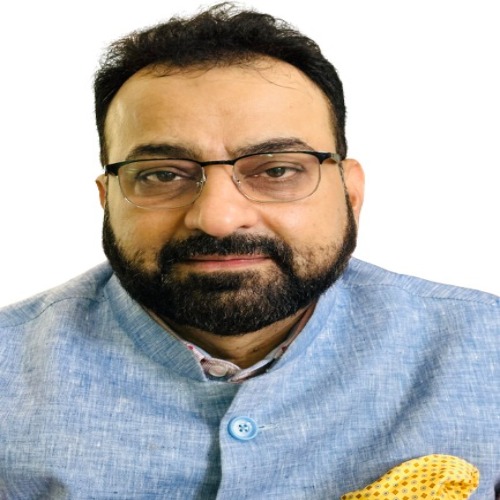 Dr. Arvind Kumar is a strategist and key-influencer in development sector with more than 28 years of experience as an author, columnist, Water and Human Rights Pro-activist, and specializes in concepts like ecosystem-based adaptation, water-energy-food nexus, with specific emphasis on Transversal approach of inter-linkages between water, environment and SDGs. He has published over 500 plus research articles and several books. He is a proud recipient of Achievers Award for his contribution to the Environment from International Human Rights Organization in collaboration with United Nations Information Centre, India. Dr. Arvind Kumar is a strategist and key-influencer in development sector with more than 28 years of experience as an author, columnist, Water and Human Rights Pro-activist, and specializes in concepts like ecosystem-based adaptation, water-energy-food nexus, with specific emphasis on Transversal approach of inter-linkages between water, environment and SDGs. He has published over 500 plus research articles and several books. He is a proud recipient of Achievers Award for his contribution to the Environment from International Human Rights Organization in collaboration with United Nations Information Centre, India. |
 Dr. David Cooper is Acting Executive Secretary of the Secretariat of the Convention on Biological Diversity. David has more than 30 years of experience in environmental and agricultural science and policy, and international negotiations, including more than 20 years with the CBD. He has built strong and productive working relationships with Parties in all regions and with partners in civil society, international organisations, and the scientific community. Dr. David Cooper is Acting Executive Secretary of the Secretariat of the Convention on Biological Diversity. David has more than 30 years of experience in environmental and agricultural science and policy, and international negotiations, including more than 20 years with the CBD. He has built strong and productive working relationships with Parties in all regions and with partners in civil society, international organisations, and the scientific community. |
| Dr. Pema Gyamtsho | Mr. Sangmin Nam |
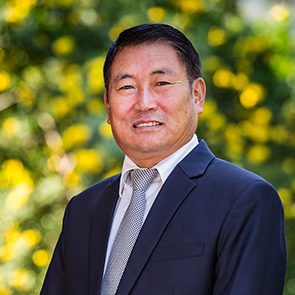 Dr. Pema Gyamtsho is the Director General of ICIMOD. He has served the Royal Government of Bhutan for over three decades in natural resources management and planning, rural development, agriculture, forestry, livestock and food production, rangeland management, livestock development, participatory approaches, research and extension institutional building, climate change and environmental protection, biodiversity conservation and organic farming. He also previously had led ICIMOD efforts in policy and partnerships and regional rangeland management work. In his previous role as Minister of Agriculture and Forests, he was involved and often led to the enactment of over 60 pieces of legislation and throughout his career he has also worked at the grassroot level where he was overseeing the formation of over 400 farmers groups and cooperatives. He holds a PhD in Natural Science from the Swiss Federal Institute of Technology, Zurich. Dr. Pema Gyamtsho is the Director General of ICIMOD. He has served the Royal Government of Bhutan for over three decades in natural resources management and planning, rural development, agriculture, forestry, livestock and food production, rangeland management, livestock development, participatory approaches, research and extension institutional building, climate change and environmental protection, biodiversity conservation and organic farming. He also previously had led ICIMOD efforts in policy and partnerships and regional rangeland management work. In his previous role as Minister of Agriculture and Forests, he was involved and often led to the enactment of over 60 pieces of legislation and throughout his career he has also worked at the grassroot level where he was overseeing the formation of over 400 farmers groups and cooperatives. He holds a PhD in Natural Science from the Swiss Federal Institute of Technology, Zurich. |
 Dr. Sangmin Nam currently works as the Director, Environment and Development Division of ESCAP. Prior to taking up the current assignment, he served as the Deputy Head, ESCAP East and North-East Asia Office (2013-2022), and Environmental Affairs Officer. Before joining the UN, he taught at Hanyang University in Seoul, served as an expert member and subcommittee coordinator of the Presidential Commission on Sustainable Development of the Republic of Korea, and worked with Green Korea United, a leading environmental NGO in the ROK as a founding member and the manager of programme and policy. Dr. Sangmin Nam currently works as the Director, Environment and Development Division of ESCAP. Prior to taking up the current assignment, he served as the Deputy Head, ESCAP East and North-East Asia Office (2013-2022), and Environmental Affairs Officer. Before joining the UN, he taught at Hanyang University in Seoul, served as an expert member and subcommittee coordinator of the Presidential Commission on Sustainable Development of the Republic of Korea, and worked with Green Korea United, a leading environmental NGO in the ROK as a founding member and the manager of programme and policy.
|
| Dr. N. Saravanane | Ms. Temina Lalani-Shariff |
 Dr. N. Saravanane is a Senior Scientist at Centre for Marine Living Resources and Ecology, Ministry of Earth Sciences, Govt. of India. He is an expert in “taxonomy and biodiversity informatics”. With more than 25 years of experience in marine living resources research in the country. He is representing India as Steering Group member in Ocean Biogeographic Information System (OBIS) of Intergovernmental Oceanographic Commission. He is currently appointed as Scientific Committee representative of Commission for the Conservation of Antarctic Marine Living Resources (CCAMLR), Hobart, Australia. Dr. N. Saravanane is a Senior Scientist at Centre for Marine Living Resources and Ecology, Ministry of Earth Sciences, Govt. of India. He is an expert in “taxonomy and biodiversity informatics”. With more than 25 years of experience in marine living resources research in the country. He is representing India as Steering Group member in Ocean Biogeographic Information System (OBIS) of Intergovernmental Oceanographic Commission. He is currently appointed as Scientific Committee representative of Commission for the Conservation of Antarctic Marine Living Resources (CCAMLR), Hobart, Australia. |
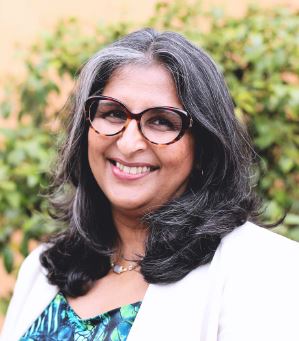 Ms. Temina Lalani-Shariff is Regional Director, South Asia, CGIAR, and a trusted leader who brings over 20 years of diverse management and business development experience in the research and innovation industry, energy, tech, telecommunications, non-profit and government sectors. She holds joint MBA degrees from the Kellogg School of Management and Schulich School of Management, an MA in Communication Studies from the University of Calgary and a BA in International Political Science from the University of Alberta. Ms. Temina Lalani-Shariff is Regional Director, South Asia, CGIAR, and a trusted leader who brings over 20 years of diverse management and business development experience in the research and innovation industry, energy, tech, telecommunications, non-profit and government sectors. She holds joint MBA degrees from the Kellogg School of Management and Schulich School of Management, an MA in Communication Studies from the University of Calgary and a BA in International Political Science from the University of Alberta. |
| Mr. Uttam Kumar Sinha | Dr. Amani Alfarra |
 Mr. Uttam Kumar Sinha is Senior Fellow of the Manohar Parikar Institute for Defence Studies and Analyses, New Delhi. He is a leading scholar and commentator on transboundary rivers, climate change and the Arctic. He was Co-Chair of the Think-20 Task Force on ‘Accelerating SDGs: Exploring New Pathways to the 2030 Agenda’ during India’s G20 Presidency. After a brief stint in the print media and a doctoral degree from Jawaharlal Nehru University, he joined the MP-IDSA in 2001, where he coordinates the Non-Traditional Security Centre and is the Managing Editor of Strategic Analysis published by Routledge, the institute’s flagship journal. Mr. Uttam Kumar Sinha is Senior Fellow of the Manohar Parikar Institute for Defence Studies and Analyses, New Delhi. He is a leading scholar and commentator on transboundary rivers, climate change and the Arctic. He was Co-Chair of the Think-20 Task Force on ‘Accelerating SDGs: Exploring New Pathways to the 2030 Agenda’ during India’s G20 Presidency. After a brief stint in the print media and a doctoral degree from Jawaharlal Nehru University, he joined the MP-IDSA in 2001, where he coordinates the Non-Traditional Security Centre and is the Managing Editor of Strategic Analysis published by Routledge, the institute’s flagship journal. |
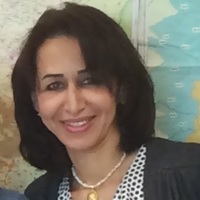 Dr. Amani Alfarra is water resources officer at the Water and land division of FAO. She has worked extensively on water management issues and challenges at different levels (National, regional and global). She is particularly interested in water management issues and programs, not only from an engineering perspective but also from a socioeconomic angle. She believes that Water scarcity has received disproportionately more attention, particularly supply-augmenting programs and less attention to demand oriented interventions, policies and programs. Dr. Amani Alfarra is water resources officer at the Water and land division of FAO. She has worked extensively on water management issues and challenges at different levels (National, regional and global). She is particularly interested in water management issues and programs, not only from an engineering perspective but also from a socioeconomic angle. She believes that Water scarcity has received disproportionately more attention, particularly supply-augmenting programs and less attention to demand oriented interventions, policies and programs. |
| Dr. Yash Veer Bhatnagar | Ms. Shweta Tyagi |
 Dr. Yash Veer Bhatnagar is the Country Representative of the International Union for Conservation of Nature’s (IUCN) India office. He brings over three decades of work experience in conservation science and practice, and in programme development and management nationally and internationally. He has led and facilitated multi-stakeholder partnerships across India with government agencies including the Ministry of Environment, Forest, and Climate Change (MOEFCC) and state forest departments, NGOs, universities, and private-sector organisations. He has served as a scientist with the Wildlife Institute of India, Dehradun, an autonomous body under the MOEFCC. Dr. Yash Veer Bhatnagar is the Country Representative of the International Union for Conservation of Nature’s (IUCN) India office. He brings over three decades of work experience in conservation science and practice, and in programme development and management nationally and internationally. He has led and facilitated multi-stakeholder partnerships across India with government agencies including the Ministry of Environment, Forest, and Climate Change (MOEFCC) and state forest departments, NGOs, universities, and private-sector organisations. He has served as a scientist with the Wildlife Institute of India, Dehradun, an autonomous body under the MOEFCC. |
 Ms. Shweta Tyagi is Chief Functionary, India Water Foundation. She is results-focused development sector professional with a 22 years of demonstrated history and a proven ability to manage project teams to deliver multiple projects and programmes across diverse sectors of sustainable Development, Water and Sanitation, Social Development, Livelihood Generation, climate change etc. Excellent knowledge of project management and strategic planning of partnership creation and coordination, as well as advising decision-makers and strengthening capacities. Experience of Natural Resource management among rural communities for implementing Ms. Shweta Tyagi is Chief Functionary, India Water Foundation. She is results-focused development sector professional with a 22 years of demonstrated history and a proven ability to manage project teams to deliver multiple projects and programmes across diverse sectors of sustainable Development, Water and Sanitation, Social Development, Livelihood Generation, climate change etc. Excellent knowledge of project management and strategic planning of partnership creation and coordination, as well as advising decision-makers and strengthening capacities. Experience of Natural Resource management among rural communities for implementing |
For more information please contact:
Ms. Shweta Tyagi
Chief Functionary
India Water Foundation
Email: [email protected]
Mobile No: +91-9899819074



